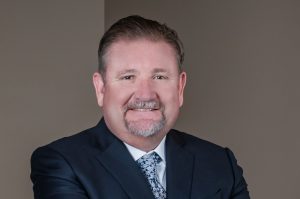As we navigate the market’s ebbs and flows, here’s to planning a promising year ahead with the right advisor on your side.
When contemplating a switch, thorough research and interviewing potential replacements are paramount. Subsequently, the bulk of the transition process is overseen by the new advisor. Concerns about notifying the previous advisor or facilitating transfers are often assuaged by signing new account paperwork, delegating such tasks to the new office. However, a courtesy call to the previous advisor is recommended.
WHAT TO EXPECT ONCE THE DECISION IS MADE
- Your new advisor will initiate paperwork for asset transfers, which may involve direct communication with clients for complex transfers, such as those from retirement plans.
- Expect a flurry of compliance paperwork accompanying the transfer, though opting for paperless account notifications can streamline this process.
- Asset transfers are typically executed “in kind” to maintain continuity, with subsequent reallocation as deemed appropriate, especially concerning tax implications.
- Asset transfers precede the migration of cost basis information, presenting an opportune moment to ensure its accuracy.
- Following asset transfers, residual dividends and fractional shares may transition over time.
- Monitoring statements closely for around 60 days post-transfer ensures the completeness of asset migration.
- While the standard transition duration spans two to three weeks, retirement plans may introduce additional complexities, such as rollover provisions contingent upon plan specifics like tenure or age requirements.
REMINDERS FOR NAVIGATING ADVISOR CHANGES
- Expect tax reporting from both the previous and new advisors, typically in the form of 1099s and K-1s.
- Tax reporting documents may extend into the first weeks of March, a recurring frustration for clients.
- Consider printing out your December 31 Statement if opting for paperless statements, retaining it for seven years.
In the realm of financial management, varied approaches abound, with no singular correct path. If change becomes necessary, the transition, despite paperwork volume, may prove less burdensome than anticipated. As we navigate the market’s ebbs and flows, here’s to planning a promising year ahead with the right advisor on your side. QCBN
By Steve Schott
Securities offered through Registered Representatives of Cambridge Investment Research, Inc., a broker-dealer member FINRA/SIPC. Advisory services through Cambridge Investment Research Advisors, Inc., a Registered Investment Advisor. Cambridge and Schott Financial Management are not affiliated. These are the opinions of Stephen Schott and not necessarily those of Cambridge, are for informational purposes only, and should not be construed or acted upon as individualized investment advice. The information in this email is confidential and is intended solely for the addressee. If you are not the intended addressee and have received this email in error, please reply to the sender to inform them of this fact. We cannot accept trade orders through email. Important letters, email, or fax messages should be confirmed by calling 928 776-1031. This email service may not be monitored every day, or after normal business hours. Indices mentioned are unmanaged and cannot be invested into directly. The Dow Jones Industrial Average (DJIA) is a price-weighted index composed of 30 widely traded blue-chip U.S. common stocks. The S&P 500 Index is a market-capitalization-weighted index of 500 leading publicly traded companies in the U.S. The Nasdaq 100 Index is a basket of the 100 largest, most actively traded U.S. companies listed on the Nasdaq stock exchange. The index includes companies from various industries except for the financial industry, like commercial and investment banks. Investing involves risk. Depending on the types of investments, there may be varying degrees of risk. Investors should be prepared to bear loss, including total loss of principal. Diversification and asset allocation strategies do not assure profit or protect against loss.
Steve Schott has been a financial advisor since 2010. His expertise in business ownership and capital management spans banking, office products, office machines and autos. A former owner of Prescott Honda, Steve holds an MBA from the University of Arizona and a Bachelor of Science in Finance from The University of Denver. Steve is a proud graduate of Prescott High School and an avid community volunteer. Steve purchased Tomlinson Wealth Management from its predecessor, Andy Tomlinson, in 2019, making Schott Financial Management a 3rd generation financial firm in Prescott, AZ.






Leave a Reply